Whether this is your first job after graduation, or you are an experienced therapist who is just now entering school-based practice, you are about to step into a new territory.
Welcome to school-based practice and to SeekFreaks! Allow us to make it easier for you by providing you with a list of summer readings for the beach, a mountain retreat, your hammock in the backyard, those long plane rides, or wherever your summer vacation plans take you.
1. Read up on the Individuals with Disabilities Education Act (IDEA)
Read up on the Individuals with Disabilities Education Act (IDEA) – the foremost reason why there are therapists working in the schools. Learn about special education and your role as a related service provider. You can find the whole regulation here – but you will quickly realize how boring it is to read this document. So, instead start with the SeekFreaks article: OTs, PTs & SLPs in Schools…How Did We Get Here?
Then, if you are…
- A PT: get a copy of Physical Therapy Services under Parts B and C of IDEA, edited by Irene R. McEwen, PT, PhD, FAPTA.
- An OT: get your hands on Occupational Therapy Services for Children and Youth Under IDEA, edited by Leslie L. Jackson, MEd, OT.
- An SLP: ASHA has a great School Services FAQ.
Read them as voraciously as you would read a newly released Harry Potter or Hunger Games prequel. If after reading these, you still have questions, or would like to find certain excerpts from IDEA regulations, you can use the search tab on the IDEA Building a Legacy website.
~~~~~~~~~~ 0 ~~~~~~~~~~
2. Read your state or school district’s school-based practice guideline
Does your state or school district have a school-based practice guideline? SeekFreaks made it easier for you to find your state guideline with our OT, PT & SLP Practice Guide Map. Print out a copy to take with you, or better yet, download a copy onto your mobile device (and save some trees in the process as some of them can be fairly long). By the way, if your state has a practice guide that is not listed in the link, let us know by commenting below or by emailing us so we can add it.
The practice guide will give you specific guidance as to how to practice in schools within your own state or school district. It will often explain how Individualized Education Program (IEP) teams meet and make decisions, and your roles and responsibilities as a related service provider (yes, you will be considered a related service provider in school-based practice, so get used to this term). These practice guides also often discuss decision-making processes for determining a student’s eligibility for special education services, establishing students’ goals, and identifying their needs for related services. You will also learn the areas of expertise and competencies expected of school-based therapists within your school districts. Some practice guidelines even contains discussions around service delivery models, as well as, frequency and intensity of services.
If your state and school district does not have a practice guide, do not fret. Here are some starting points to learn more about your role in the school.
- Occupational Therapy Services in Early Childhood and School-Based Settings: Published by the American Journal of Occupational Therapy, it provides guidance for OTs practicing in school-based practice.
- Role of School-based Physical Therapy: Provides a short description of the role of PTs in our schools.
- Updated Competencies for Physical Therapists Working in Schools: A list of skills and knowledge therapists need to possess to provide services to students with disabilities.
- Physical Therapy for Educational Benefit: Would you like a comparison between school-based and clinic-based practice? Here it is, created by the American Physical Therapy Association’s School-based Special Interest Group in collaboration with the Hospital-based Special Interest Group. It starts by pointing out the similarities between the two settings, followed by the differences. Although it focuses on physical therapy, you can quickly see how it can apply to OTs and SLPs.
- ASHA Roles and Responsibilities of Speech-Language Pathologists in Schools: Created by the American Speech Language and Hearing Association, this contains a list of A website containing various resources to learn about SLP’s role in schools, with great examples of “Dos and Don’ts.”
While you’re reading your practice guide, might as well revisit your state practice acts to review what you should do, and what you can and cannot do under your license, registration and/or certification.
- PTs can find links to all states’ practice acts here.
- SLPs can find state information here.
- OTs – unfortunately, I can’t find a complete listing for you. If you just search online for “occupational therapy practice act” plus your state, you should be able to find it easily.
~~~~~~~~~~ 0 ~~~~~~~~~~
3. Learn about the Individualized Education Program (IEP)
As school-based practitioners, Individualized Education Programs (IEPs) will be a huge part of your life. Whereas, medical-based settings use doctor’s prescriptions and medical documentation, the therapists in the educational setting rely on what is contained in the students’ IEPs.
Of course, you will find some general guidelines on IEPs on the IDEA: Building a Legacy website. You can also visit your state education department’s website to find specific guidance within your state.
However, those guidance are often very general. How do they apply specifically to therapists? For this information, read the 4-part SeekFreaks series IEP 4.0 that begins here. This is a quick primer on our responsibilities in the IEP process focusing on 3 particular IEP sections, the Present Level of Academic Achievement and Functional Performance, Goals & Progress Monitoring, plus a non-IEP, but just as important item, the Plan of Care. Although, the examples are PT-related, OTs and SLPs can find pearls of wisdom that they can readily apply to their practice. We plan to come out with an OT version in the near future, and an SLP version to follow after.
~~~~~~~~~~ 0 ~~~~~~~~~~
4. Get Cozy with the ICF
If you read materials 1-3 above thoroughly, you will realize that there is a lot of talk about participation. So you would need to brush up on the International Classification of Function, Disability and Health (ICF) so you can become fluent in describing impairments, activities and participation, and when setting participation goals with the IEP team. It would help you to skim through the ICF-Children and Youth Version. It is a little less tedious than reading the full IDEA regulations. However, if you like a quick primer, read Recognizing ICF Domain Words…Amusing Musings.
~~~~~~~~~~ 0 ~~~~~~~~~~
Let me stop right here – that’s plenty of reading already. There is a lot more to learn, but I do not want to overwhelm you. The above should provide you a good foundation to start your school-based practice.
If you have extra time, you can also read a book that I am currently reading, Far From the Tree by Andrew Solomon. A description of the book includes the following statements:
“All parenting turns on a crucial question: to what extent should parents accept their children for who they are, and to what extent they should help them become their best selves. Drawing on ten years of research and interviews with more than three hundred families, Solomon mines the eloquence of ordinary people facing extreme challenges.”
Six of the 10 chapters deal with specific disabilities, such as Down Syndrome, autism, and multiple severe disabilities. It is an eye-opening read into the lives and minds of families that you will likely encounter in school-based practice.
It is interesting to note the varied views from each family that you will meet in the book; views that are at times at odds with each other. This book is a great way to start your practice with a sense of empathy for varying families’ perspectives, and an understanding that the needs of every child and family are different.
~~~~~~~~~~ 0 ~~~~~~~~~~
Seeking Your Views
To our seasoned school-based practitioners, do you have other recommended must-reads for new school-based practitioners? Comment below.
~~~~~~~~~~ 0 ~~~~~~~~~~
Readers of this article also read:
Late Summer Reading List for Seasoned School-based OTs, PTs and SLPs
Motoropoly 1: Motor Learning Principles in School – Instructions, Feedback & Demonstrations
The 4 Pillars of School-based PT Assessment
10 Handy American Speech-Language-Hearing Association Resources
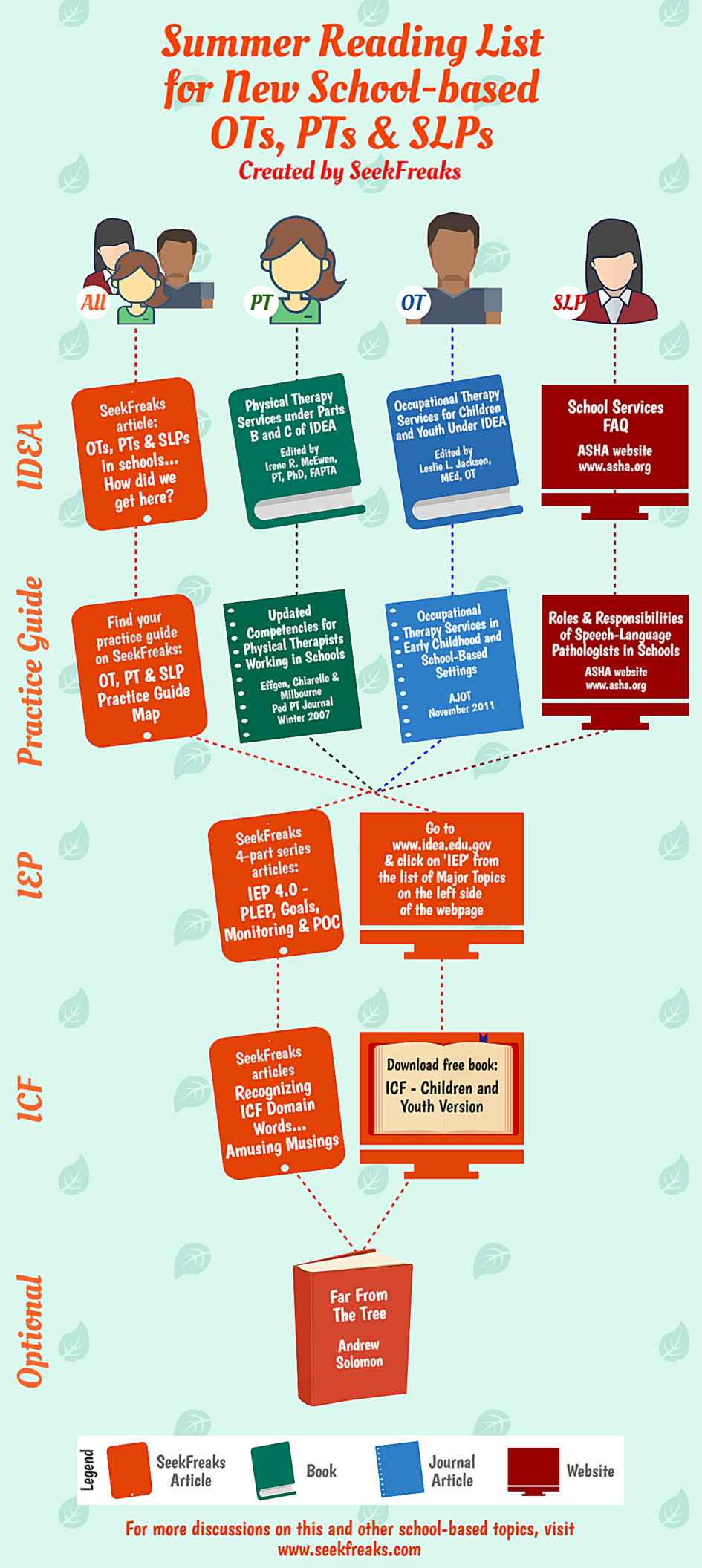
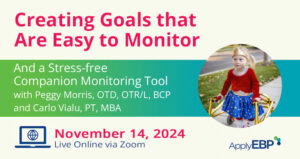

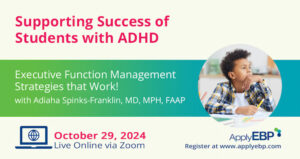
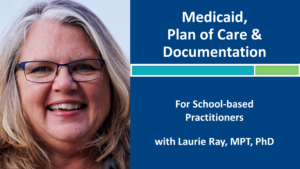
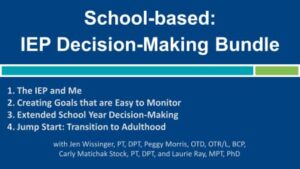
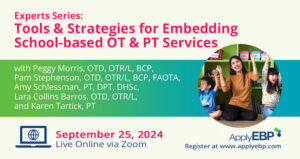
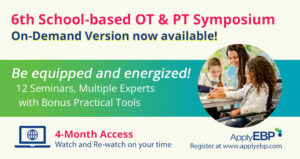
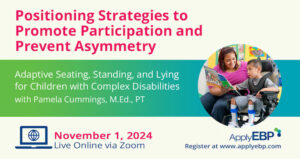
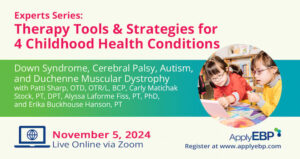
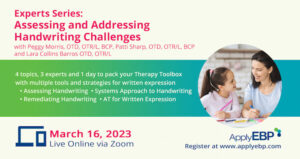
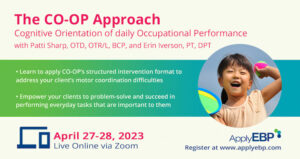
1 Pingback